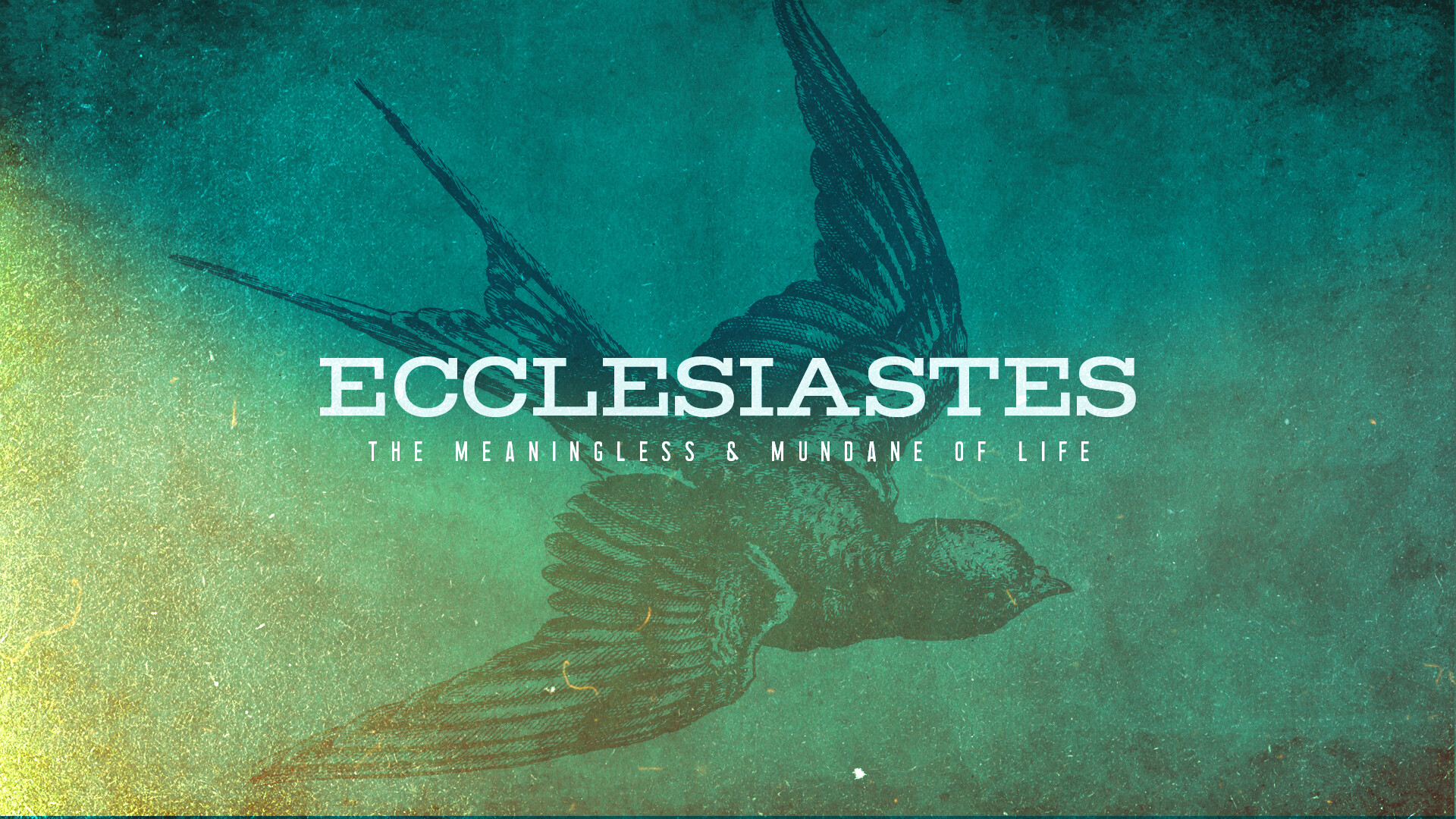Course: Ecclesiastes
May 04, 2023 | Dave Rueter
Passage: Ecclesiastes 1:14
Search for Meaning
Ecclesiastes 1:14
I have seen everything that is done under the sun, and behold, all is vanity and a striving after wind.
As noted in last week’s material, Solomon had lived a very full life. As King, he had no shortage of experiences. Unfortunately, at this point in his life, he came to realize the futility of those experiences. God offered Solomon anything that he wanted. Rather than asking God for wealth or fame, Solomon asked for wisdom. This was a truly noble request. God granted Solomon great wisdom, greater wisdom than anyone had ever possessed. Along with that gift of wisdom, Solomon was blessed with wealth and fame, even though he did not ask for them. Solomon’s request demonstrated plenty of his own innate humility and wisdom.
In v. 16 Solomon notes that “I have acquired great wisdom, surpassing all who were over Jerusalem before me, and my heart has had great experience of wisdom and knowledge.” Solomon had discovered the limitation of wisdom, even such wisdom as God had granted to him. He states in v. 17 that “ I applied my heart to know wisdom and to know madness and folly. I perceived that this also is but a striving after wind.” Solomon had tried to make his wisdom work for him. What may be going on here is the realization, that even God’s wisdom granted to another, when used by one who no longer, or at least less consistently seeks to return to the source of that wisdom for guidance, is itself foolishness.
Solomon goes on to say in v. 18 that “For in much wisdom is much vexation, and he who increases knowledge increases sorrow.” This is sort of the inverse sentiment of the old saying that ignorance is bliss. With the wisdom of Solomon came an acute awareness of his own limitations. This struggle with his own limits seems to have been much of the cause of his reflection and struggle that caused him to pen Ecclesiastes.
Notice that Solomon talks about his own efforts and striving. He is not talking about his work in, with, or through the Lord, but his own. In his great wisdom, Solomon may well have developed a critical blind spot. He was able to rely so much on his own wisdom and knowledge that he no longer recalled just how dependent upon God he truly was.
Thoughts for Reflection
How can our reliance on our own strengths become our own weakness? Further, how can this be avoided?
Course Information


